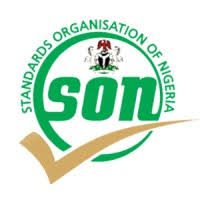
CIBN to build banking school, inducts 485 new members
The Chartered Institute of Bankers of Nigeria (CIBN) on Saturday said it has begun the process towards building a banking school to further enhance professionalism and financial ethics in the banking and financial sectors.
The institute said the project was in addition to its ongoing capacity building certification programmes to promote ethics and professionalism in the sector.
President/Chairman of Council, CIBN, Ken Opara said this in a speech at the hybrid 2024 Graduates’ Induction and Prize Awards Day (Stream1) of the institute.
The event, which saw the induction of 485 people, had members and inductees from viewing centres across the 36 states of the federation in attendance.
Opara said in recent years, the Financial Services Industry had faced numerous challenges and controversies, hence, the need for renewed focus on ethics and professionalism.
He said instances of unethical behaviour, regulatory violations, and breaches of trust had tainted the reputation of the industry and weakened public confidence.
He said high-profile cases of misconduct and infractions had resulted in financial losses and injured the reputation of financial institutions and professionals.
“In response to this challenge, the Institute has implemented a mandatory annual Ethics Compliance Certification Programme, which is being deployed through the CIBN e-Learning Platform for staff of banks.
“The purpose of this certification is not only to address specific cases of misconduct but also to ensure that the practice of banking in Nigeria aligns with global standards as prescribed by the Global Banking Education Standards Board (GBESB).
“By fostering a culture of ethical conduct and continuous learning, we can uphold the integrity of our profession and enhance trust and confidence in the financial services sector.
“Another critical initiative of the institute which will help drive this crusade is the human capital development project.
“This will culminate in the establishment of a banking school which will among other things harp on entrenching ethics and professionalism among practitioners.
“The Governing Council will in the days ahead constitute the Board of that banking school to superintend on the project,” he said.
Opara said the theme of the programme, “Ethics and Professionalism: A Prerequisite for Building Sustainable Careers and Institutions” aligned with the core values of the institute and the banking profession.
He said ethics and professionalism were important in retaining trust, credibility, and sustainability of the banking industry in an era of technological advancements, evolving regulatory landscapes, and dynamic market conditions.
The CIBN boss also reeled out benefits of professionalism, adding that it required continuous learning and self development for career progression and gaining public trust.
“Today, we shall be inducting a total of 485 graduates, comprising eighteen (18) from the CBMBA route, four (4) from the MSc/ACIB route, 33 from the collaboration with Lagos Business School on Chartered Bankers route, 281 from the regular examination route, and149 candidates as Microfinance Certified Bankers,” he said.
He congratulated inductees, reassured them of CIBN’s commitment and expressed confidence that their knowledge, skills, and ethical values will contribute to growth, development, and sustainability of the financial services in Nigeria and globally.
The Lagos State Commissioner for Finance, Mr Oluyomi Abayomi, commended the capacity building tenacity of the CIBN having impact across Africa.
Abayomi thanked the institute for supporting the monetary policy of the government and urged the inductees to shun any form of enticement or inducement that could make them engage in corruption.
The Guest Speaker, Mr Abubakar Suleiman, stressed the need to make integrity and credibility the best reasons for entering the banking profession.
He said some people join the profession to earn a living, some for the prestige, entrepreneurship and the miscreants who come with intentions to steal or dupe customers.
Suleiman, Managing Director/CEO, Sterling Bank Plc, said while some join the banking profession with different motives, “some bankers see themselves as nation builders and they use banking as a platform.”
He urged bankers to use the profession as a platform for transitioning into other higher national responsibilities while maintaining ethical standards.
“Your personal ethics are going to be defined by your intentions,” he said.
He urged the inductees “to have clarity of purpose,” hold the institute in high esteem and uphold public trust.



